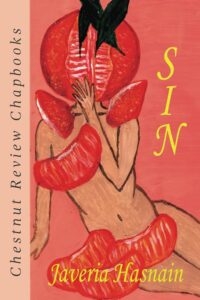The Shattered Novel: Rules of Fragmented Fiction
Samantha Edmonds
October 29, 2017
I tried to write a novel once. And I found myself despairing: how is it possible to string paragraphs into pages into chapters into novels? How to make something as unruly as a story fit into a linear narrative? Then, my first year of grad school, several things happened: a friend recommended Reader’s Block by David Markson; a professor assigned Department of Speculation by Jenny Offill; a classmate mentioned Speedboat by Reneta Adler. That’s when I realized: The novel is falling to pieces!
In other words, paragraphs are out. Fragments are in.
These three novels are exemplary of fiction that has shattered during construction. They don’t follow a linear narrative, but instead consist of scene-scraps and thought-splinters patched haphazardly together to tell a story. Reader’s Block describes itself as “nonlinear. Discontinuous. Collage-like. An assemblage.”[i] The narrator in Department of Speculation call her memories “tiny particles that swarm together and apart.”[ii] Jen Frain, the protagonist in Speedboat, admits she has “lost [her] sense of the whole.”[iii] Forget everything you think you know about novels. The fragmented form doesn’t care how something should be written.
*
Think these novels are too cool for rules? They’re not. The best fragmented novels—no matter how abstract—must use at least these three characteristics to be successful:
1)lSeeming randomness (which is actually patterned). At first glance, disconnected sections in the fragmented form appear without meaning. But these seemingly unrelated fragments aren’t the madness they seem; Guy Trebay, in his afterword to Speedboat, writes, “Although at times it can seem these miniatures are deployed…arbitrarily and in no special order, like the things one sees in dreams, they are in truth organized in subtle and inevitable patterns.”[iv]
For example, in one section of Speedboat a white girl brings a date of another ethnicity to a friend’s wedding: “[The Argentinian boyfriend] was very rich, with more profound good manners than any Anglo-Saxon I have met, but he had not troubled much with haircuts. After we had all swum awhile outside, the bride’s mother asked me in confidential tones whether I thought she ought to drain the pool.”[v] There’s a white space, and then the next section begins, “‘Well, you know, you can’t win them all,’ the old bartender said. ‘In fact, you can’t win any of them.’”[vi] There’s a tickle in the brain reading these sections together; they’re seemingly unrelated—the bartender is anonymous and has never been mentioned before—but then the reader understands that for all the Argentinian’s good qualities, his long hair and non-whiteness will forever be that by which he is judged. Understanding that, the bartender’s, “You can’t win them all,” suddenly takes on monumental weight. In other words, there’s nothing the Argentinian can do.
Department of Speculation is similarly patterned. The narrator, after recently learning about her husband’s infidelity, says, “Lately I’ve been having this recurring dream: In it, my husband breaks up with me at a party, saying, I’ll tell you later. Don’t pester me. But when I tell him this, he grows peevish. ‘We’re married, remember? Nobody’s breaking up with anybody.’” A moment of white space, then: “‘I love autumn,’ [the daughter] says. ‘Look at the beautiful autumn leaves. It feels like autumn today. Is autumn your favorite time of year?’ She stops walking and tugs on my sleeve. ‘Mummy! You are not noticing. I am using a new word. I say autumn now instead of fall.’”[vii] The narrator’s daughter is using a new word to talk about something old, familiar. Rather like the way people say “divorce” once they’re married, instead of “breaking up.” Offill doesn’t have to spell that out, however, because the patterns of her sections do it for her.
Despite their random appearance, these fragments are carefully ordered to evoke something strange and true in the associative habit of human thoughts—these patterns are vital in fragmented fiction. Lesser fragmented novels, random but without underlying patterns, wouldn’t be as successful.
2) Plot. In each successful fragmented novel, there must still be a plot, and the more familiar, the better. Of the three novels under discussion, Jenny Offill writes the clearest plot (a wife discovers her husband cheating), and I believe it’s for that reason I find this novel the most successful. One of the notable differences in the reading experience of Department of Speculation versus Reader’s Block, for example, is the extended moments grounded in scene in Offill’s novel. The scenes are straightforward, recognizable—even clichéd—as scenes in an infidelity novel: a confrontation with the “other woman,” marriage counselling, emphasis on the daughter, memories of their past. The story doesn’t attempt to do anything game-changing regarding the standard relationship plot; it’s already attempting to experiment in other areas (like form).
When I met Jenny Offill at the University of Cincinnati in 2015, I menionted her novel reminded me of Reader’s Block without the abstraction, and she said she was a fan of Markson. She added that, to her, the most notable difference between the novels was that, in hers, she only wrote two or three “random” abstract sections before returning to the plot, whereas Markson tended, at times, to write pages and pages of story-less lines and quotes before returning to a scene. For that reason, Department of Speculation is more accessible. The novel earns the ability to emphasize random asides and abstract fragments because in the scenes where there is plot, it’s astonishingly simple. By contrast, Reader’s Block is obscure, almost plot-less, making it the hardest to follow or experience as a story.
Without plots that are at once easily described and instantly recognizable, would the fragmented novel succeed? Could one write a science fiction novel this way, for example? An epic fantasy quest, in worlds not immediately our own? If not impossible, it would be extremely difficult—and may not be met with as much success. “Easy plots” give fragmented fiction the space to experiment in other ways.
3) Metafictionality.
A graduate student sits in a coffee shop writing an essay.
Defiantly adding “metafictionality” to her Microsoft Word dictionary, regardless of if it’s a word.
What David Shields said: “I find it very nearly impossible to read a contemporary novel that presents itself unselfconsciously as a novel, since it’s not clear to me how such a book could convey what it feels like to be alive right now.”
Recognizing this as the best explanation for what seems—to the grad student—to be the biggest source of success in a fragmented novel.
The novels are aware of themselves as constructs, and doesn’t try to hide that—rather, they embrace it, display it.
Relish in it.
The narrator in Department of Speculation is a writer and writing teacher. Reader in Reader’s Block is writing a novel. Jen Frain in Speedboat is a journalist.
Metafictionality in fragmentary fiction offers commentary on what it means to be a novel, and what it means to try to write one truthfully today.
Example: in Department of Speculation, Offill gets to have her cake and eat it too in the wife’s confrontation scene with the other woman. The chapter begins, “She would not have let one of her students write the scene this way. Not with the pouring rain and the wife’s broken umbrella and the girl with her long black coat,” then proceeds to give criticism of the scene: “To begin with, she’d suggest taking out the first scene….she would ask for more details of the girl’s appearance…she’d point out that what’s interesting is actually the lead-up scene.” She then writes the scene exactly as she said she shouldn’t—in the street, in the rain, with the wife kicking a mailbox.[viii] Readers know she knows this scene is cliché, which makes it not cliché—or at the very least, enjoyable as cliché. The metafictional nod to the reader, the tongue in cheek, brings us pleasure where, in other circumstances, presented sincerely, many readers would groan.
If Jenny Offill gives valuable insight into what it means for a novel to be a novel today—everything has been done a hundred times, the only way to make something feel new is to say you know it’s not new and then do it anyway (by pointing out your work’s weaknesses, do they become strengths?)—then David Markson is attempting to capture the reality of writing such a novel. Reader’s Block is more metafictional than both Department of Speculation and Speedboat. The novel’s opening lines, “Someone nodded hello to me on the street yesterday. / To me, or to him? / Someone nodded hello to Reader on the street yesterday,” imply that while he decides in the third line to write in the third person, this is a novel about Markson himself. Indeed, he admits as much on the next page: “Granted, Reader is essentially the I in instances such as that.”[ix]
The Markson novel is the only of the three books to question what it is.
“A novel of intellectual reference and allusion, so to speak, minus much of the novel?”[x]
*
To me, the most exciting thing about the fragmented novel is that it gets at something “true” about living and writing that paragraphs can’t reach. We need fragmented fiction because life simply isn’t like a paragraph. It’s shattered, patterned, associative, all scraps and half-things and bright splinters—and, like these novels, so much the better for being broken.
[i] David Markson, Reader’s Block, (Urbana-Champaign: Dalkey Archive Press, 2014): p. 193.
[ii] Jenny Offill, Department of Speculation, (New York: Vintage Books, 2014): p.3.
[iii] Renata Adler, Speedboat, (New York: The New York Review of Books, 2013): p. 10.
[iv] Guy Trebay, “Afterward,” Speedboat by Renata Adler, (New York: The New York Review of Books, 2013), p. 173.
[v] Adler, Speedboat, p. 40.
[vi] Adler, Speedboat, p. 40.
[vii] Offill, Department of Speculation, p. 50.
[viii] Offill, Department of Speculation, pp. 129-31.
[ix] Markson, Reader’s Block, p. 9-10.
[x] Markson, Reader’s Block, p. 61.
***
ABOUT THE AUTHOR
Samantha Edmonds’s fiction has appeared or is forthcoming in such journals as Day One, Black Warrior Review, Pleiades, Indiana Review, Monkeybicycle, and McSweeney’s Internet Tendency. Her nonfiction has been published in Bustle, Elite Daily, Ravishly, and more. She currently lives in Knoxville, where she’s an MFA candidate at the University of Tennessee. Visit her online at www.samanthaedmonds.com






